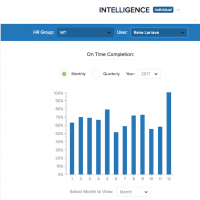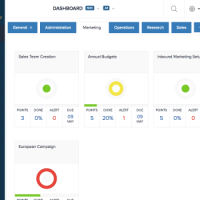Why do most employees see training as a chore of little value? Why is it that training is so hard to make interesting and engaging? Why is knowledge retention so hard to achieve?
Insights
Why are we so often caught reacting to an interminable sequence of crises that seem to reoccur more often than they should?
We have all heard the stories of startup “unicorns” — the unlikely heroes of the Silicon Valley tech boom that have reached or exceeded a $1 billion valuation.
Why is it that 61% of all technology projects fail at the point of implementation (as found in a Merkle Group survey)?
Project Management offices are well-oiled machines, tasked with constant attention to pending tasks, dependencies, and upcoming deadlines.
It seems like the tech industry and startups are always bragging about their ability to “disrupt” established industries.
While working as a management consultant with clients all over the globe, CommandHound CEO and founder, Rene Larrave, always found himself in the same situation.
Law offices are unique environments that require a special blend of confidentiality and openness with clients.
Culture is one of the most central features of a company, and almost all executives (84% from a Deloitte study) believe that it is crucial to determining success.
Few professional offices have to deal with as much information as law firms and remember so many critical things.









